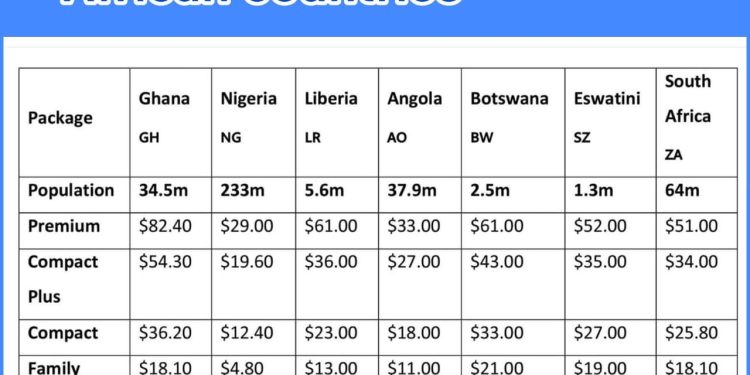A fierce row has erupted between MultiChoice Ghana, operators of DStv, and the Minister for Communications, Digital Technology and Innovation, Sam Nartey George, over subscription fees charged by the satellite television service in Ghana.
In a strongly worded statement issued on Sunday, August 3, and signed by Managing Director Alex Okyere, MultiChoice rejected the Minister’s directive to reduce its subscription prices or risk losing its broadcasting licence.
The company insisted that the current pricing structure reflects the harsh economic realities it faces and cannot be arbitrarily altered without compromising service quality.
“MultiChoice values its subscribers and endeavours at all times to keep DStv subscription fees as low as possible, despite the extremely challenging competitive and macro-economic environment in which we operate,” the company said.
Minister’s ultimatum
The row began when Mr. George, speaking at a press briefing on Friday, August 1, accused DStv of exploiting Ghanaian consumers and ordered the National Communications Authority (NCA) to suspend the company’s broadcasting licence if prices are not reduced by August 7, 2025.
Mr. George argued that despite the Ghana cedi’s recent appreciation against the US dollar, Ghanaians still pay significantly more than customers in neighbouring Nigeria.
He cited the example of DStv Premium, for which Ghanaian subscribers pay approximately $82.40, compared to just $29 paid by Nigerians for the same package.
He further questioned MultiChoice’s pricing model, insisting that the company must align its charges with local economic improvements.
“It is unacceptable that Ghanaians should continue to pay almost three times more for the same service being enjoyed by Nigerians,” the Minister stated.
DStv pushes back
In response, DStv’s nine-page letter to the Ministry highlighted the severe impact of currency depreciation on its operations in Ghana.
The company noted that the Ghana cedi had depreciated by more than 240% over the past eight years, adding that the recent currency recovery is not robust enough to warrant sweeping price cuts.
“It is not tenable to reduce the DStv subscription fees in the manner proposed by the Minister,” the company maintained, while denying ever describing the cedi’s appreciation as a “fluke.”
MultiChoice also described the Minister’s public remarks as “regrettable,” particularly in light of ongoing private engagements with both the Ministry and the NCA aimed at finding a mutually beneficial solution.
“It is regrettable that the Minister has taken this stance, notwithstanding our ongoing endeavours to engage with the Honourable Minister candidly and in good faith on this important matter,” the company said.
Seeking constructive dialogue
Despite the disagreement, MultiChoice reiterated its willingness to continue engaging with the government.
It revealed that it has already submitted proposals to both the Ministry and the NCA as part of efforts to reach a resolution.
The company, which has operated in Ghana for over three decades, warned that any regulatory impasse could have severe consequences for its local operations, including staff and business partners.
“We are mindful of the dire implications that an impasse may have on you and your livelihoods, and we assure you that we are committed to working together with the Minister and the NCA to resolve this matter,” the company assured.
A brewing regulatory battle
As the August 7 deadline approaches, the standoff is fast becoming a litmus test for regulatory authority in Ghana’s telecommunications and broadcasting sector.
While the Minister seeks to assert consumer protection and pricing fairness, MultiChoice is appealing for a more nuanced understanding of its operational challenges, especially in the face of volatile exchange rates and inflation.
The company ended its statement by reaffirming its commitment to the laws of Ghana and a constructive relationship with state regulators.
“MultiChoice remains committed to constructive engagement with the Honourable Minister and to complying with all applicable laws and regulations in Ghana, and trusts that the authorities will do likewise,” the statement concluded




